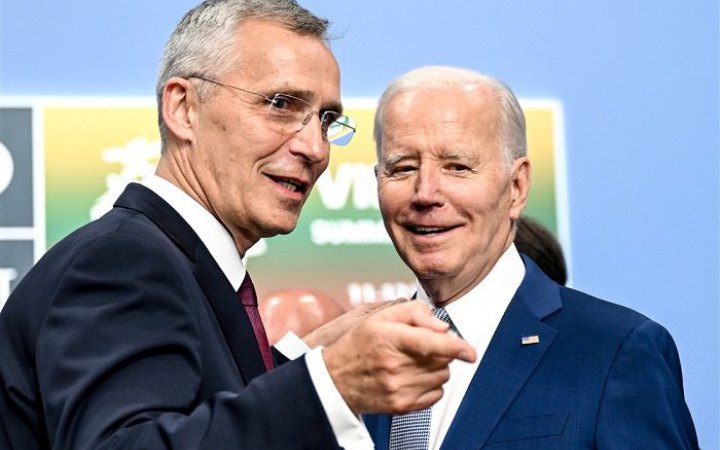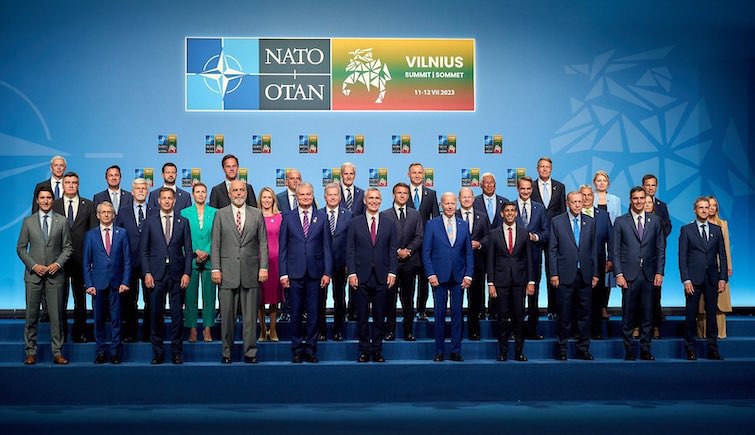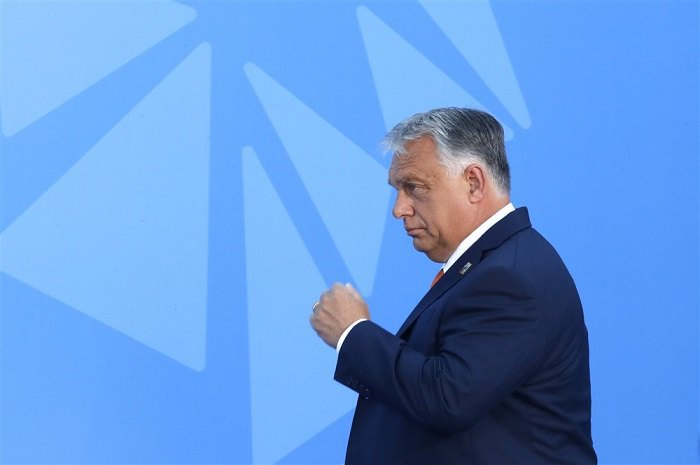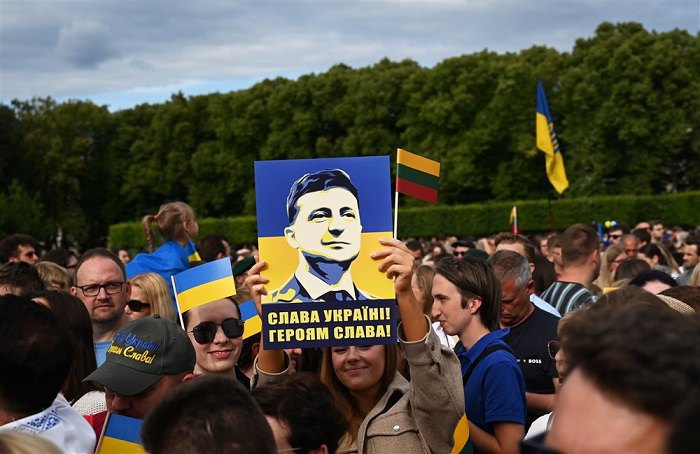
NATO leaders decided to cancel the intermediate stage of membership process, the Membership Action Plan (MAP), which was not granted to Kyiv and Tbilisi in 2008. At the time, they just mentioned that NATO's door remained open to Ukraine and Georgia. However, this weak and unwise policy has led to several wars waged by Putin.
NATO acknowledged that Ukraine no longer needs the MAP as it is considered outdated, thanks to Ukraine's significant progress in reforms and defence interoperability. One might have expected a shortened accession procedure, similar to that used by Finland and Sweden, with an invitation extended to Ukraine. However, this did not happen.

While it was clear that NATO leaders would not immediately accept Ukraine into the Alliance, the position of the United States and Germany, stating that it was impossible during the war, reflected the sentiments expressed by some states on not wanting to be directly involved in a conflict with Russia. However, it is worth noting that NATO's Article 5 does not mandate the direct sending of troops or weapons.
Although understandable, Ukrainians had hoped for a clear roadmap with specific accession dates and conditions for full membership, but only vague wording was provided.
The summit communiqué emphasized that Ukraine would be invited to join NATO when all conditions are met and the Allies agree, shifting the focus from accession conditions to invitation conditions. We were politely pointed to yet another "open" door.

This brings the question: What conditions must Ukraine fulfill to receive this invitation? NATO has answered this question, stating that improvements in defence interoperability and additional democratic reforms are necessary.
However, first, there are concerns regarding the feasibility of democratic transformations during a large-scale war, as historical logic and common sense suggest otherwise.
Second, democratisation has no limits. When will we be told that we are democratic enough to be granted... by the way, to be granted what - membership of the Alliance or an invitation? Maybe there is some kind of democracy scale: how many reforms do we need to implement to become a candidate and how many to become a full member?
Third, why does it seem that these vague conditions are sometimes even worse than the MAP, which at least gave us an understanding of what exactly needs to be improved? However, this time, unlike in Bucharest, there is a sense that the Allies will deliver on at least some of their promises.
Another issue lies in the guarantees offered. NATO's annual review of Ukraine's progress, carried out by foreign ministers, allows states like Hungary to impede Ukraine's progress and exert pressure. This indefinite process may result in new requirements and plans being set, potentially prolonging the invitation stage.

On a positive note, an expanded package of political, financial, and defence support programmes for Ukraine has been established, along with the creation of the NATO-Ukraine Council. Eastern European partners hope this will facilitate joint weapon production, technological development, and the opening of new enterprises under Western licenses. The Alliance's full support for Zelenskyy's peace formula, encompassing political, defence, energy, and financial guarantees, is also an important signal.
However, NATO members have demonstrated reluctance to act aggressively towards Russia. The request to cancel the founding act on relations with Russia lacked majority support. These agreements restrict NATO from deploying forces near territories bordering Russia.
Allied leaders are still looking back at Putin's shadow. Their latest refusal sent a signal to Russia that it still has the tools to influence the decisions of the organisation's members on Ukraine. After Vilnius, the Russian leadership will be convinced that the only thing that will keep Ukraine out of NATO is war.
Ultimately, it was not Ukraine that lost in Vilnius, as it will persist and succeed after all. Rather, it was the Alliance that lost by showcasing its weakness and indecision.









